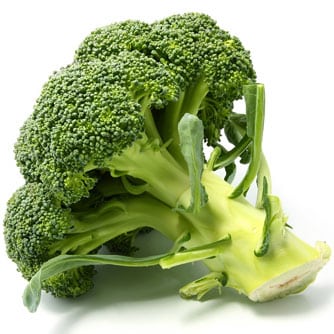Many of the health benefits of broccoli and other cruciferous vegetables stem from the fact that they are a rich source of phytochemicals called glucosinolates. There are many glucosinolate supplements on the market; however results of a study led by Emily Ho, an Oregon State University associate professor in the School of Biological and Population Health Sciences, and principal investigator with the Linus Pauling Institute, suggest that they may be of little value. Results showed that an enzyme called myrosinase is missing from the majority of supplement forms of glucosinolates. Myrosinase is vital as it needed to break down the glucosinolates into sulforaphane and erucin, which are thought to possess potent anti-cancer properties. The absence of myrosinase in the supplements meant that the body actually absorbed 5-times less sulforaphane and 8-times less erucin than would be absorbed by eating raw or lightly steamed broccoli. “The issue of whether important nutrients can be obtained through whole foods or with supplements is never simple,” concluded Ho. “Some vitamins and nutrients, like the folic acid often recommended for pregnant women, are actually better-absorbed as a supplement than through food. But the particular compounds that we believe give broccoli and related vegetables their health value need to come from the complete food.”
Health Benefits of Broccoli Not Available from Supplements
JD Clarke, K Riedl, D Bella, SJ Schwartz, JF Stevens, E Ho. Comparison of Isothiocyanate Metabolite Levels and Histone Deacetylase Activity in Human Subjects Consuming Broccoli Sprouts or Broccoli Supplement. Journal of Agricultural and Food Chemistry. 2011, September 19. [Epub agead of print].
RELATED ARTICLES




